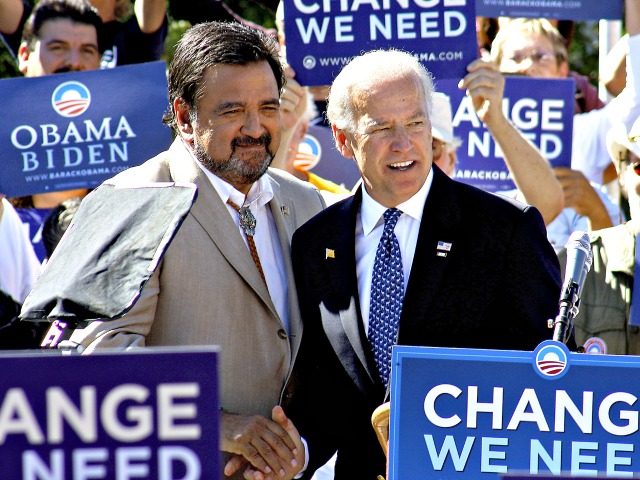A one-time high ranking United Nations official is throwing his weight behind Joe Biden’s “Build Back Better” agenda, which has its foundation in a wide-sweeping disaster relief effort conceived by the international body.
Former Gov. Bill Richardson (D-NM), who served as President Bill Clinton’s U.N. ambassador during the late 1990s, penned an op-ed in Real Clear Politics on Monday, praising Biden’s plan for as a way to “lead our nation and economy into the modern 21st century.”
“In my years as one of America’s diplomats, I witnessed how easily conflict can arise,” he wrote. “Vice President Biden and I also shared the view that while we as a country should always strive to remain out of conflict and aspire for international peace, national defense should never take a back seat.”
Richardson proceeded to argue that it was vital for the U.S. to rebuild and protect its domestic supply chain infrastructure. The op-ed comes as the impact of the novel coronavirus pandemic is still being felt in public health and economic terms.
Since the outbreak started, the former vice president has begun emphasizing a broader economic and social agenda to “transform” the country. Biden’s program, known simply as “Build Back Better,” has its foundation in an international disaster relief program designed by the U.N. over the past two decades. Countries, like Japan in the wake of its deadly 2011 earthquake, have used the framework and its central planning components to rise out of disaster. More recently, however, it has formed the centerpiece of progressive climate change programs, like the Paris Climate Accord.
Similarly, the former vice president has proposed in his “Build Back Better” agenda ambitious and costly environmental goals. Biden’s plan, heavily influenced by the recommendations of a unity task force set up earlier this year by the presumptive nominee and his vanquished primary rival, Bernie Sanders, suggests spending $2 trillion over four years to combat climate change. A large portion of the money will be spent on updating more than four million buildings nationally to meet energy efficiency standards.
Biden’s plan also includes a pledge to transition the nation to 100 percent clean electricity by 2035. If implemented, the policy would likely have an adverse impact on the coal and natural gas industries. According to the Energy Information Association, coal and natural gas produce 63 percent of all the electricity consumed across the U.S. annually.
A number of the environmental policies touted within Biden’s “Build Back Better” plan have been at the center of the U.N.’s energy policy in recent years.

COMMENTS
Please let us know if you're having issues with commenting.